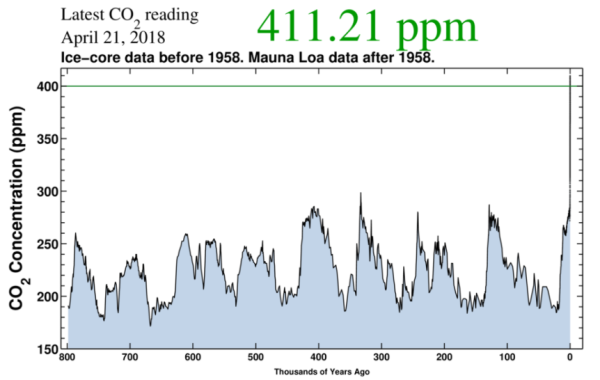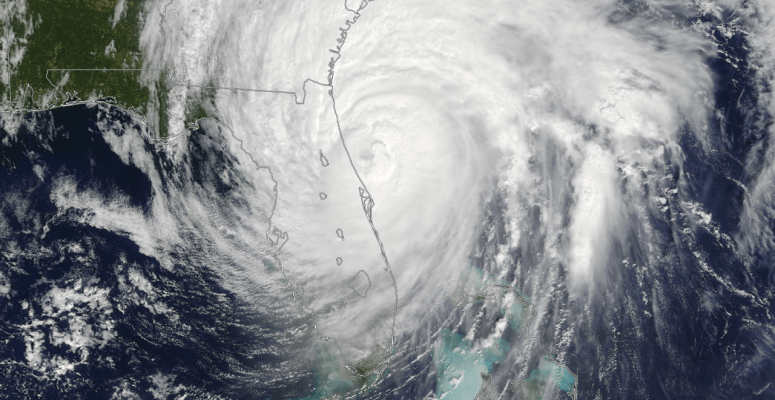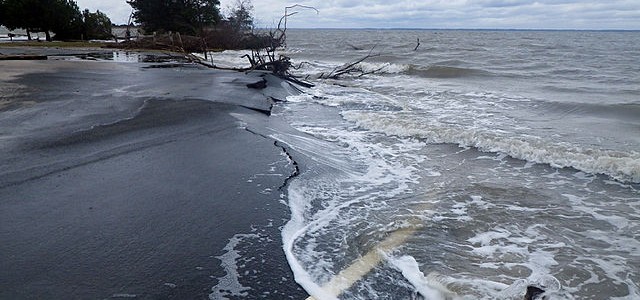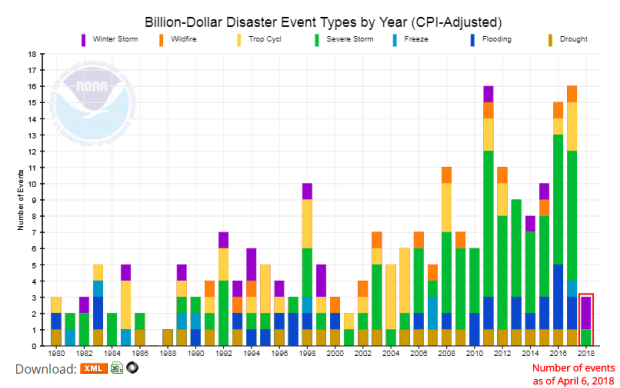Climate science
-

The latest reading of atmospheric carbon dioxide from Mauna Loa Observatory in Hawaii shows that the atmospheric concentration of carbon dioxide has now passed 410 parts per million. This is a level that has not been seen on earth in at least the last 800,000 years according to data from ocean and ice cores. As…
-

Recent research on tropical storms and how they might develop and grow in a warmer climate shows that it is quite likely that in the future, tropical storms and hurricanes will be larger than they have been in the past. This is due to a combination of warmer water, which provides energy to the systems,…
-

With sea levels rising around the world due to thermal expansion of ocean water and melting of polar ice, you might expect the sea level to be rising equally everywhere, since all the oceans are connected. However, there are local areas where sea level is rising faster than others due to effects of land movement,…
-

A new study published recently by the Royal Meteorological Society has confirmed what climatologists have known for quite a while–minimum temperatures (which are usually observed around sunrise) are rising faster over time than maximum (daytime) temperatures. One of the results of this is that the daily temperature range between max and min temperatures is decreasing.…
-

This week I ran across a comprehensive discussion of the science of global warming and climate change that might be useful for you as you discuss the science of changing climate with others. It is presented in a question-and-answer format that follows along with a lot of questions that I get from people who don’t…
-

Aerosols are small particles that are lofted into the atmosphere by the effects of trees, volcanos, and human enterprises like farming, driving, and building. Aerosols in the air can affect the climate in a number of ways. If they are hydroscopic they can attract water vapor and become larger, affecting visibility and how much terrestrial…
-

The latest issue of NOAA’s Beyond the Data blog by Deke Arndt looks at the statistics of March 2018 in the larger context of how to interpret anomaly maps and trends and discusses what a billion-dollar weather disaster really means. You can read it at https://www.climate.gov/news-features/blogs/beyond-data/all-things-being-equal-edition.